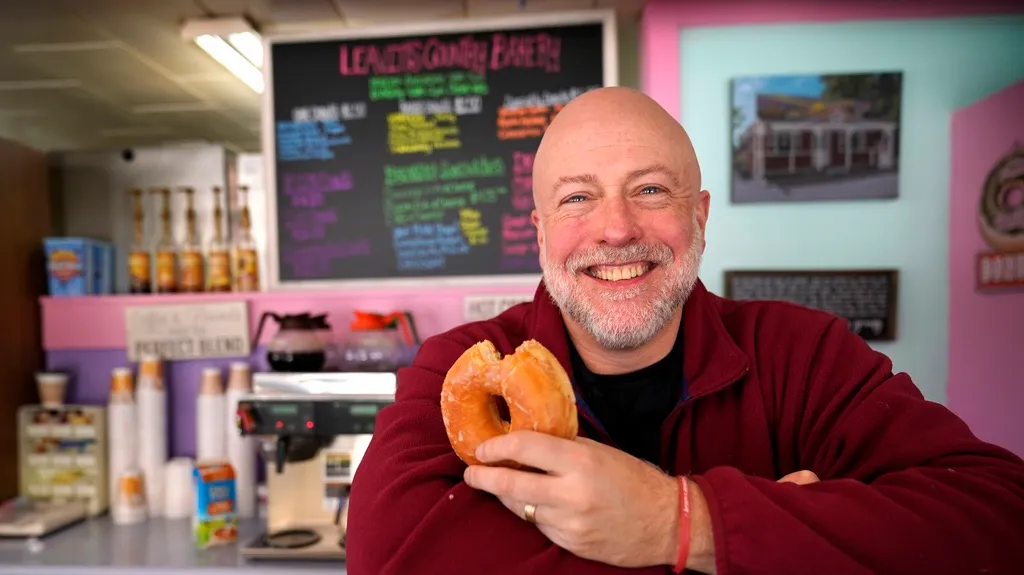June 14, 2013
Nevada ACLU Backs 'Patient Dumping' Suit
Winnie McCroy READ TIME: 4 MIN.
A psychiatric patient has filed a federal civil rights lawsuit in Nevada accusing state officials of giving him a one-way bus ticket to Northern California, where he arrived, scared and disoriented, without money and identification in a city where he didn't know anyone and had never been.
"I'm a victim of patient dumping," James Flavey Coy Brown declared Wednesday during a news conference describing the lawsuit filed on his behalf by the American Civil Liberties Union of Nevada and Sacramento, Calif.-based lawyer Mark Merin.
"We were dumped off like unwanted people," Brown said. "We're not supposed to be treated that way. Because we're human beings."
The complaint filed Tuesday in U.S. District Court in Las Vegas seeks class-action status for Brown and as many as 1,500 people his lawyers claim were bused since 2008 from Nevada to almost every state in the U.S.
Brown is the only named plaintiff. The lawsuit that makes nine claims, including negligence and breach of fiduciary duty. It seeks an immediate court order to stop Nevada from sending psychiatric patients out of state, unspecified damages for Brown and others, and a declaration that patients' civil rights were violated.
"It's unfortunate that litigation is required to ensure that patients aren't given 'Greyhound therapy,'" said Allen Lichtenstein, ACLU of Nevada general counsel.
"Simply placing people on buses to destinations where they know no one and have no means of getting necessary psychiatric, medical and even personal care is both improper and illegal," he said.
Defendants are six state agencies including the Nevada Department of Health and Human Services, the Division of Mental Health and Development Services and the Bureau of Health Care Quality and Compliance, plus eight individual hospital and state agency administrators.
A spokeswoman for state Attorney General Catherine Cortez Masto said Wednesday the state hadn't received a copy of the lawsuit, but her office would defend the Nevada agencies and employees.
Brown, 48, said he moved to Las Vegas in 2011, after it became increasingly hard to get mental health services in his home state of South Carolina.
In Las Vegas, a community mental health agency helped him get an apartment where he lived on his Social Security disability payments for two years. Brown said he received psychiatric treatment several times over the years at a for-profit hospital before he was admitted Feb. 9 to the state's Rawson-Neal Psychiatric Hospital in Las Vegas.
Brown as diagnosed at with psychosis and reported hearing voices and thoughts of suicide, according to the lawsuit. It says a psychiatrist ordered him discharged Feb. 13 and he was taken to a Greyhound bus station where he was given a pre-paid ticket to Sacramento, bottles of a liquid nutritional supplement and three days of anti-psychotic medication.
Merin told reporters that at least three other patients from Rawson-Neal were in the same taxi to the bus station, and that each had a ticket to a different California city. He said he believed hundreds of people may been bused to cities where they had no family, no friends, no contacts and no firm housing arrangements.
"What we're facing is locating the other patients and discovering the extent of this outrage," the attorney said.
Brown arrived "homeless, confused and anxious" in Sacramento after a 15-hour bus ride, according to his lawsuit. After a day on the streets, he arrived at a hospital emergency room where officials found him space at a psychiatric hospital.
Brown has since been reunited with his daughter, Shotzy Brown Harrison, and now lives with her and her husband and young daughters in Winston-Salem, N.C.
Harrison, 25, who works as a nurse, said she lost contact with her father in November 2010 when she was pregnant and he was living in a tent in the woods around Seneca, S.C. For two years, she said she feared Brown was dead.
"I wish that the hospital would have tried to notify me that he was there, because the whole scary situation could have been prevented," she said of her father's experience. "I would have picked him up...no taxi, no bus or anything."
Lichtenstein and Merin credited the Sacramento Bee with exposing Brown's experience. Reports spurred investigations by federal and Nevada state officials, denials by Nevada Gov. Brian Sandoval of systematic wrongdoing, and assurances that staff members who violated discharge policies had been fired.
City attorneys in Los Angeles and San Francisco announced in April that they were launching criminal investigations.
Sandoval spokeswoman Mary-Sarah Kinner noted Wednesday the governor wasn't named in the federal complaint.
"Rawson Neal Psychiatric Hospital has been, and continues to be an accredited and licensed facility," she said.
Rawson-Neal is the only state adult psychiatric hospital in southern Nevada, a region with about 2 million of Nevada's 2.7 million residents. It opened in 2006 with 190 beds, following years of complaints that mentally ill people were clogging emergency rooms at for-profit hospitals in and around Las Vegas. Administrators acknowledged at the time that many more beds were needed.
An April 29 summary by state Health and Human Services officials reported that 31,043 people were admitted to Rawson-Neal during a five-year span, and that 1,473 patients were provided bus transportation out of the state. Of those, state officials identified 10 cases where documentation was insufficient to determine whether staff had confirmed the patient had family or a support system waiting for them.
Winnie McCroy is the Women on the EDGE Editor, HIV/Health Editor, and Assistant Entertainment Editor for EDGE Media Network, handling all women's news, HIV health stories and theater reviews throughout the U.S. She has contributed to other publications, including The Village Voice, Gay City News, Chelsea Now and The Advocate, and lives in Brooklyn, New York.







